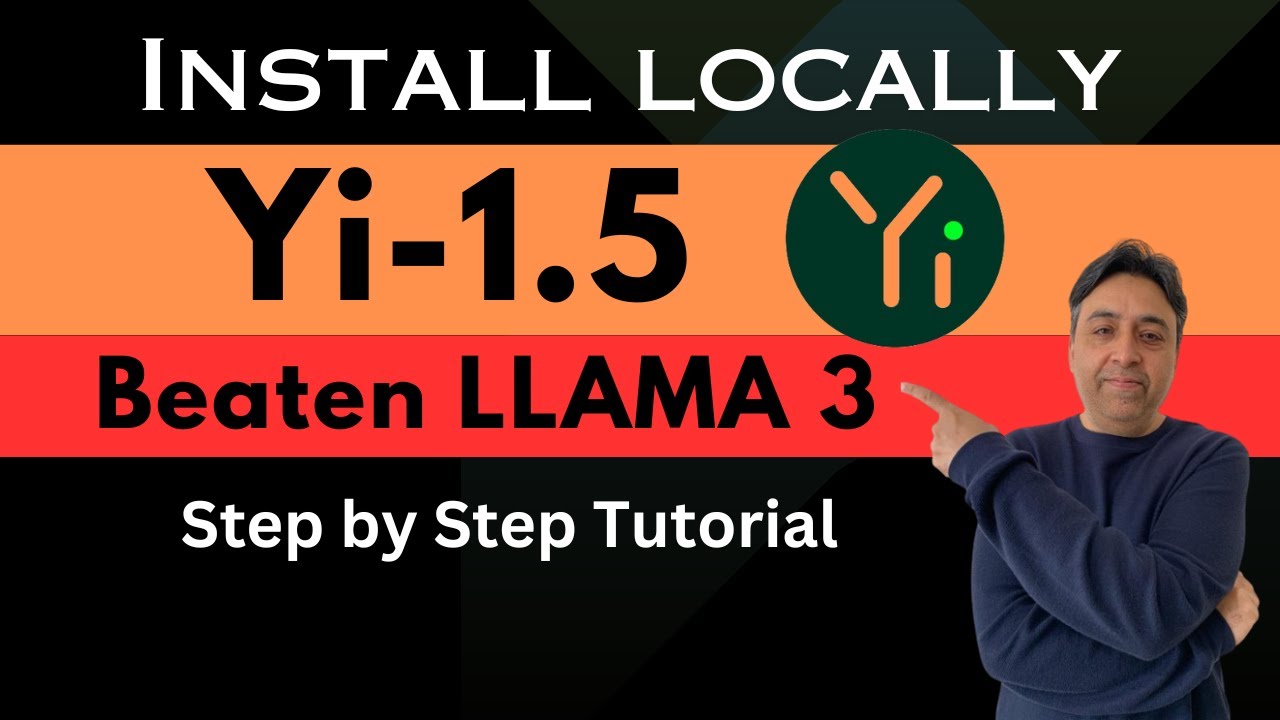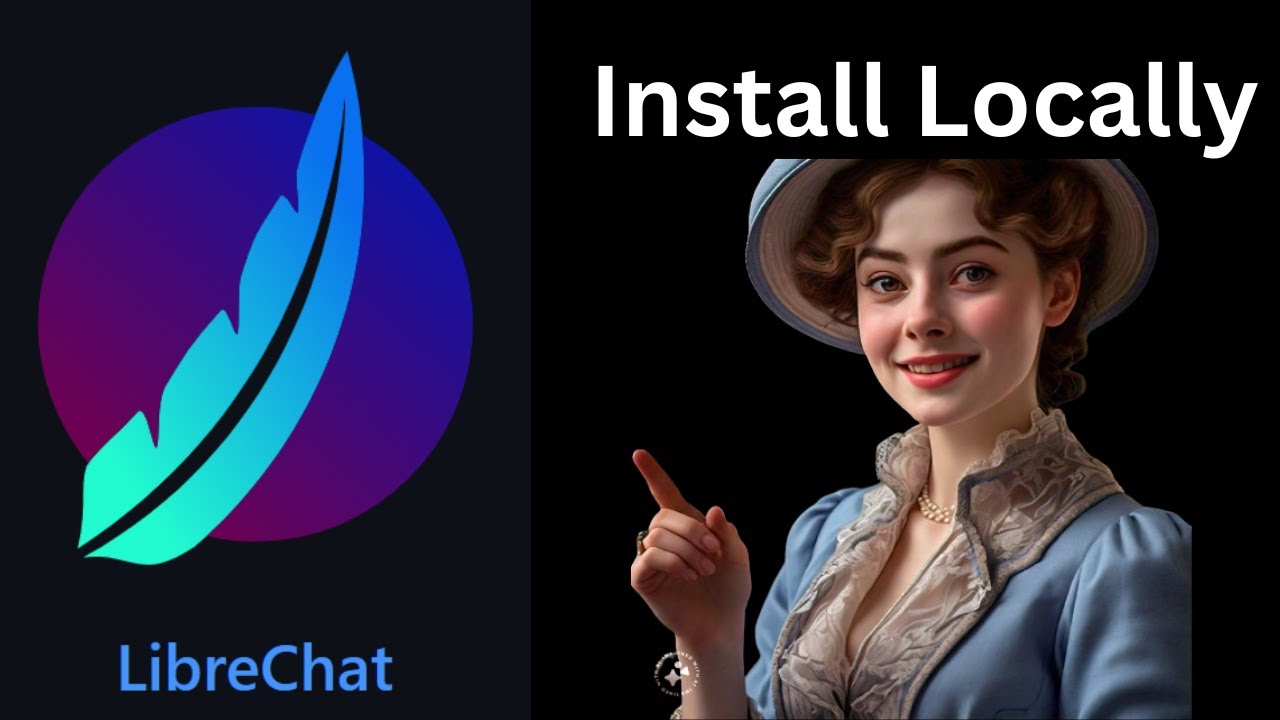How to Select an AI Model for Specific Domain or Task
Summary
TLDRيتناول النص المقدم من الTRANSCRIPT التحديات المتعلقة باختيار نموذج لغة كبير، خاصة عند الرغبة في اختيار نموذج مخصص ل某种特定 مجال من بين آلاف النماذج المفتوحة المصدر. يُشير إلى أنه لا توجد قواعد صارمة لاختيار النموذج المناسب، وأن التحسين الشخصي على النموذج المختار من قبل الشركات الموثوقة مثل Google أو Meta هو طريقة مفيدة. يُشير إلى أن الاختيار قد يتطلب بحثًا مكثفًا وتحليلًا لبيانات التدريب لضمان أن النموذج يلبي الاحتياجات المطلوبة. يُشير إلى وجود قوائم تصويت مدعومة من المجتمع مثل قوائم Nexa AI التي توفر نظرًا عامًا على النماذج الفعالة في مجالات محددة. يُنصح بالتفكير في التحسين الشخصي للنماذج المفتوحة المصدر ودمجها مع البيانات الخاصة وتحليلاتها القانونية والأخلاقية المتعلقة باستخدام النماذج في مجالات معينة.
Takeaways
- 🤔 **选择语言模型的困难**: 从众多开源模型中选择一个适合特定任务的语言模型(LLM)是一项艰巨的任务。
- 📈 **API选择的简化**: 如果选择限于基于API的闭源模型,如AWS的Bedrock或Google的Vertex AI,选择过程会相对简单。
- 🔍 **开源模型的选择**: 对于开源模型,如Hugging Face提供的,需要本地安装,选择变得更加复杂。
- 🚀 **通用模型的微调**: 选择一个高质量的通用模型(如Google的Gemma或Meta的Llama),然后用自己的领域数据进行微调。
- 🏥 **特定领域的模型**: 对于特定领域(如医疗或法律),存在一些已经建立声誉的模型,如Open Bio LLM或Med-PaLM。
- 📊 **社区驱动的排行榜**: Nexa AI的Octopus模型有一个社区驱动的排行榜,可以作为选择模型的参考,但不应完全依赖。
- 📚 **领域特定模型的搜索**: 在寻找特定领域的模型时,可以搜索特定于该领域的模型,如医学领域的模型。
- 🔬 **MMLU基准测试**: MMLU(Massive Multitask Language Understanding)基准测试用于评估语言模型在多任务设置中的准确性。
- 🧐 **数据集的重要性**: 选择模型时,考虑模型训练所用的数据集是否与您的任务相关非常重要。
- 🚫 **法律和伦理考量**: 使用AI模型,尤其是在医疗等敏感领域,需要考虑法律和伦理问题。
- 🛠️ **模型选择的复杂性**: 选择AI模型是一个复杂的过程,需要仔细规划和大量研究。
- ❓ **个性化建议的挑战**: 由于缺乏硬性规则和领域特定的排行榜,很难为特定用例提供具体的模型选择建议。
Q & A
在选择大型语言模型时,为什么会感到困难?
-选择大型语言模型困难,是因为存在数千个开源模型,以及不同云服务提供商提供的API基础的闭源模型,这使得选择过程变得复杂,尤其是当需要从hugging face等仓库中选择并本地安装一个开源模型时。
如果选择受限于基于API的闭源模型,选择过程会变得简单吗?
-是的,如果选择仅限于基于API的闭源模型,那么选择过程会变得相对简单,因为只需要考虑API成本和通用目的模型。
提到了哪些通用目的的大型语言模型?
-提到了OpenAI的GPT-4和GPT-3.5模型,以及AWS的Bedrock和Google Cloud Platform的Vertex等超大规模提供商的模型。
当需要选择一个特定领域的开源模型时,有什么推荐的策略?
-推荐的策略是选择一个高质量的通用语言模型,如Google的Gemma或Meta的Llama,然后在自己的领域数据上进行微调。
如果不想进行微调,但需要一个特定领域的模型,应该怎么做?
-可以搜索非常特定于领域的模型,例如医疗领域的Open Bio LLM或法律领域的S LLM。
Nexa AI模型Octopus的repo中提到的leaderboard是什么?
-Nexa AI模型Octopus的repo中的leaderboard是一个社区驱动的排行榜,人们可以对不同模型在不同领域的性能进行投票,尽管它可能不是完全可信的,但看起来是一个有趣的参考。
MML U数据集是什么,它如何帮助选择模型?
-MML U数据集是一个大规模多任务语言理解基准测试,旨在通过零样本和少样本设置评估模型的多任务准确性。它包含多种测试,用于评估语言模型在多个领域的理解和问题解决能力。
在选择模型时,为什么需要考虑法律和伦理影响?
-在选择模型时,需要考虑法律和伦理影响,因为不同领域的模型可能涉及敏感数据和决策,例如医疗模型不能简单地取代人类医生,而应该在特定数据上进一步微调和集成。
为什么说没有硬性规则来选择模型,即使在GitHub或hugging face上有推荐?
-因为没有硬性规则,因为即使在GitHub或hugging face上有推荐,也不能保证这些模型在特定领域就是最好的,需要自己做适当的尽职调查。
在选择金融相关的NLP模型时,应该注意什么?
-在选择金融相关的NLP模型时,应该查看其训练数据集,确保金融数据集在训练中占有重要比重,并且需要验证这些信息的准确性。
为什么说选择模型不是一个容易的任务?
-选择模型不是一个容易的任务,因为它需要仔细的规划和大量的研究,需要考虑模型与特定任务和数据的匹配度,以及模型的质量和信誉。
如果观众有选择模型的方法或疑问,他们应该如何参与讨论?
-如果观众有选择模型的方法或疑问,他们可以在视频的评论区提出问题或分享方法,这样可以帮助他人并促进知识的共享。
为什么观众在看完视频后被鼓励订阅频道并分享内容?
-观众被鼓励订阅频道并分享内容,因为这样可以支持频道的增长,帮助更多人获取有用的信息,并扩大知识共享的网络。
Outlines
🤔 Choosing the Right Language Model: A Complex Task
The first paragraph discusses the challenges of selecting a large language model (LLM) for a specific task or domain. It highlights the difficulty of choosing from thousands of open-source models on platforms like Hugging Face, especially when there is no definitive benchmark for selection. The speaker suggests starting with high-quality models from reputable sources like Google or Meta and then fine-tuning them with domain-specific data. They also mention the existence of domain-specific models like those for medical or legal fields. The paragraph also introduces a community-driven leaderboard from Nexa AI's repository, which ranks models based on community votes, although it is noted that this is not a definitive source.
📈 Evaluating Language Models with the MMLU Benchmark
The second paragraph delves into the Massive Multitask Language Understanding (MMLU) benchmark, which is designed to measure a language model's accuracy across multiple domains in both zero-shot and few-shot settings. It discusses how different models perform in various fields such as computer security, medicine, and law, based on the MMLU dataset. The speaker emphasizes the importance of considering the specific task and data when choosing an AI model and warns about the legal and ethical implications of using LLMs in sensitive domains like medicine. They also caution against relying solely on GitHub or Hugging Face for model selection, advocating for careful due diligence and research. The paragraph concludes with an invitation for viewers to share their model selection methodologies and to engage with the content by subscribing and sharing the video.
Mindmap
Keywords
💡Large Language Model (LLM)
💡Open-Source Models
💡Fine-Tuning
💡Domain-Specific LLMs
💡Hugging Face
💡Hyperscalers
💡Benchmarking
💡MMLU (Massive Multitask Language Understanding)
💡Legal and Ethical Implications
💡Community-Driven Leaderboard
💡Due Diligence
Highlights
Selecting a large language model can be a daunting task, especially with thousands of open-source models available.
API-based closed-source models are easier to choose from, as they often come down to API cost and general-purpose suitability.
Popular general-purpose models include GPT 4, GPT 3.5, AWS Bedrock, and Google Cloud's vexi.
For open-source models, there isn't a 100% benchmark for selection, suggesting the importance of domain-specific fine-tuning.
High-quality models like Google's Gamma or Meta's Lama can be fine-tuned on domain-specific data for better performance.
Domain-specific models such as Open Bio LLM for medical or S LM for legal are recommended for their respective fields.
The speaker suggests searching their channel for domain-specific language models, having covered various models in 2,000 videos.
Nexa AI's model Octopus and its community-driven leaderboard is mentioned as an interesting concept for model selection.
The leaderboard provides insights into models' suitability for various domains, such as biology, business, chemistry, and law.
MML U dataset is introduced as a benchmark for evaluating language models' multitask accuracy across domains.
The choice of AI model should depend on the specific task and data, considering legal and ethical implications.
It's cautioned against replacing human professionals with AI models in sensitive domains like medicine without proper vetting.
Domain-specific LLMs should ideally be further fine-tuned with proprietary medical data for enhanced performance.
The process of selecting and fine-tuning a model requires careful planning and extensive research.
There's no hard and fast rule for model selection, and due diligence is crucial, as not all models perform as advertised.
For finance-related tasks, it's important to check if the model's training dataset includes a significant amount of financial data.
The speaker encourages viewers to share their model selection methodologies in the comments for the community's benefit.
The importance of considering the model's performance on specific datasets is emphasized for accurate task suitability.
The video concludes by emphasizing the complexity of model selection and the need for viewer engagement and contribution.
Transcripts
selecting a large language model is hard
ask for any domain or any task if your
owner says to select or choose a model
then you know the pain especially if you
are trying to select or choose a model
from thousands of open-source models
from hugging phase then it can become a
real daunting task if your choice is
only limited to API based closed Source
models then it is not that hard then you
just have to select the API cost you
just have to look at the general purpose
model and most of the people end up
going either with open AIS model such as
GPT 4 or GPT 3.5 or they select a model
from hyperscalers like public cloud from
AWS like Bedrock or from Google Google
Cloud platform vexi and there are
various other services and then there
are some also uh specific uh Cloud
providers who are geared towards AI like
together and then there are heaps of
them which provide you API based llms
and then you can select from them now
the real issue becomes when you have to
select a model an open source one from
repositories like hugging face and you
have to locally install it how do you do
that how do you know which llm is is
good for a specific task I will be very
honest and candid up front I don't think
so we have any uh specific and I should
say 100% Benchmark to select that as of
now I would say that if you're looking
to do that then instead of searching for
a domain specific llm maybe pick a good
quality llm like maybe Gemma from Google
or Lama from meta or similar models like
53 from Microsoft and few there are few
others too from reputable companies and
then find tune it on your own domain
data so that is one way but if you don't
want to fine tune and you are still bent
on selecting a model which is specific
to The Domain then maybe search for very
very particular domain specific models
for example if you're looking for a
medical oriented model there are few of
them which have become quite reputable
like open bio llm then we have met palom
and then there are few others for
example for legal one we have S LM and
then I have covered various models so
one way could be to just search my
channel for legal domain llm medical
domain llm so I have done like 2,000
videos just last year and I'm sure that
you will find one llm or another
according to your domain
now but the thing thing is that it is
still very hard that is why I would I
was quite curious when I was doing a
video on Nexa AI model octopus I
stumbled upon their repo and I stumbled
upon this leaderboard from their um repo
and I will also drop the link in VI's
description they have created this
Community Driven leaderboard so I would
say um don't trust it but looks
interesting so that is why I thought of
sharing it because people are voting
about it and you know it's a democracy
is up to you if
you really think that this makes sense
for example for Einstein older version
for llama 3 there is only there are only
12 votes but for llama 38 billion there
are 11 votes and according to this
leaderboard Einstein is really good for
biology but if you scroll down you will
see the Einstein version 4 is the other
than Lama 3 is good for biology too but
the vs are lesser similarly you would
see there are some domain specific LMS
like for business chemistry health law
medicine chat and then there is no
mention of open bio llm doesn't look
like it is updated that much so but
interesting concept I should say and
then for philosophy openms Lama 3
Stanford and that sort of stuff and if
you go through the repo you will see
that they have also put in a similar
sort of category wise models where you
can um select a model as per for example
if you want to go with these subjects
and I think they are from MML U data
set MML U is a benchmark and MML U
stands for massive multitask language
understanding and it's a test designed
to measure a text model's multitask
accuracy by evaluating model in zero
shot and few shot settings the MML U
Benchmark is a diverse set of tests
designed to evaluate the understanding
and problem solving abilities of
language models across multiple domains
so if you look at it for example in this
one this aaka C Lama 3 smog one it is
quite good for computer security high
school computer science and then for
example this medicine chat is for good
for anatomy nutrition and that sort of
stuff and then if you scroll down you
will see this law chat is good for
international law Juris prudence and
that sort of stuff and I think I already
have covered most of them in detail on
my channel so if you're interested on
them but I think that this is still of
course no we exhaustive list there are
thousands of models hundreds of models
out there and I can tell you off the bat
there are lot of them which are not that
good in that domain I'm not going to
name them but I should say that that is
why I'm saying there is no hard and fast
Ru just because something is written in
GitHub or on hugging face doesn't mean
that it is true so you know treat
carefully do your own due diligence
because the thing is that selecting a
model is very hard so for example um you
are searching for a finance related
model so NLP models that are used to
analyze financial news and research
reports you should look at their data
set and see if um that Finance data set
is heavy during the training or not if
you can find that information but then
how do you know that information is
correct so you see that there is no hard
fast rule there and I don't know of any
leaderboard which is domain specific and
is also very very reputable if you know
it please please put it in the comments
I'll be very happy uh to cover it off so
it is really important to note that the
choice of AI model depends on the
specific task and data at hand it is
also important to consider the legal and
ethical implications of using e models
in different domains so you can't just
pick up a model for example a medical
model such as this llm medical chat or
whatever it name was and even you know
the good ones I'm not saying this is a
bad one I mean the I mean which are
quite popular and famous like like open
bio medical llm you can't just put it in
your clinic and just replace the human
doctors with it you simply can't do it
but what you can do you can pick these
domain specific llms and then F tune
further on your own medical data so that
is something I think would be quite
beneficial because they would already be
trained on some large corpora related to
that domain and if you f tune them as
per your own domain that should be
awesome and then you know further down
the red you Road you also integrate rag
Pipeline with it that could be
beneficial too but it's not an easy task
this is this requires quite a careful
planning and lot of research so you see
that selecting a model is very hard that
is why when you guys ask uh you know ask
your questions in the comments asking me
that which model would be best for this
use case that is why it's very hard for
me to tell you so my apologies I'm not
trying to be unhelpful but I simply
can't tell you off the B by just looking
at your question and telling you okay
use this model anyway I hope that this
was beneficial if you have any questions
please uh let me know and of course if
you have some meth method methodology to
select a model which you think is good
please share share it away in the
comments if you like the content please
consider subscribing to the channel and
if you're already subscribed then please
share it among your network as it helps
a lot thanks for watching
5.0 / 5 (0 votes)


Merge Models Locally While Fine-Tuning on Custom Data Locally - LM Cocktail

Hugging Face GGUF Models locally with Ollama

World's Most Dangerous Cities: Port Moresby (PNG) BBC Stories

Install Yi-1.5 Model Locally - Beats Llama 3 in Various Benchmarks

Inside Brisbane’s ROUGHEST Area - LOGAN - Into The Hood

Install LibreChat Locally